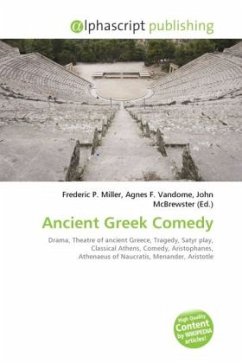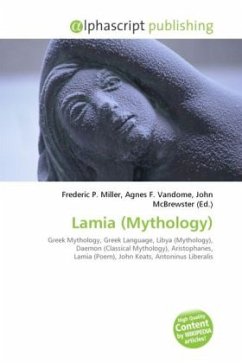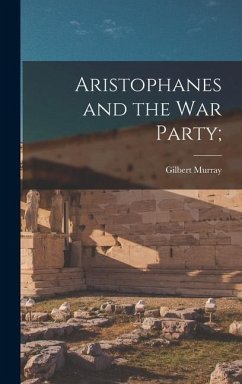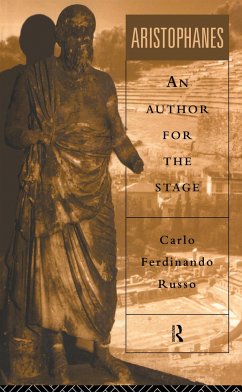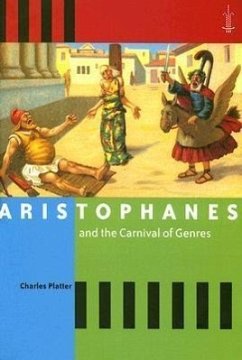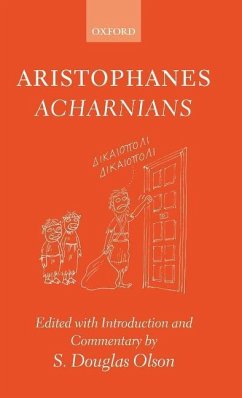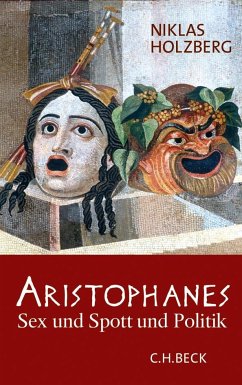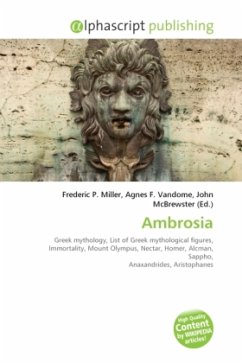
Ambrosia
Versandkostenfrei!
Versandfertig in 6-10 Tagen
39,99 €
inkl. MwSt.

PAYBACK Punkte
20 °P sammeln!
In ancient Greek mythology, ambrosia is sometimes the food, sometimes the drink, of the gods, often depicted as conferring ageless immortality upon whoever consumes it. It was brought to the gods in Olympus by doves (Odyssey xii.62), so may have been thought of in the Homeric tradition as a kind of divine exhalation of the Earth. Ambrosia is very closely related to the gods' other form of sustenance, nectar. The two terms may not have originally been distinguished; though in Homer's poems nectar is usually the drink and ambrosia the food of the gods; it was with ambrosia Hera "cleansed all def...
In ancient Greek mythology, ambrosia is sometimes the food, sometimes the drink, of the gods, often depicted as conferring ageless immortality upon whoever consumes it. It was brought to the gods in Olympus by doves (Odyssey xii.62), so may have been thought of in the Homeric tradition as a kind of divine exhalation of the Earth. Ambrosia is very closely related to the gods' other form of sustenance, nectar. The two terms may not have originally been distinguished; though in Homer's poems nectar is usually the drink and ambrosia the food of the gods; it was with ambrosia Hera "cleansed all defilement from her lovely flesh" (Iliad xiv.170), and with ambrosia Athena prepared Penelope in her sleep (Odyssey xviii.188ff) so that when she appeared for the final time before her suitors, the effect of the years had been stripped away and they were inflamed at the sight of her. On the other hand, in Alcman, nectar is the food, and in Sappho (fragment 45) and Anaxandrides, ambrosia is the drink.



